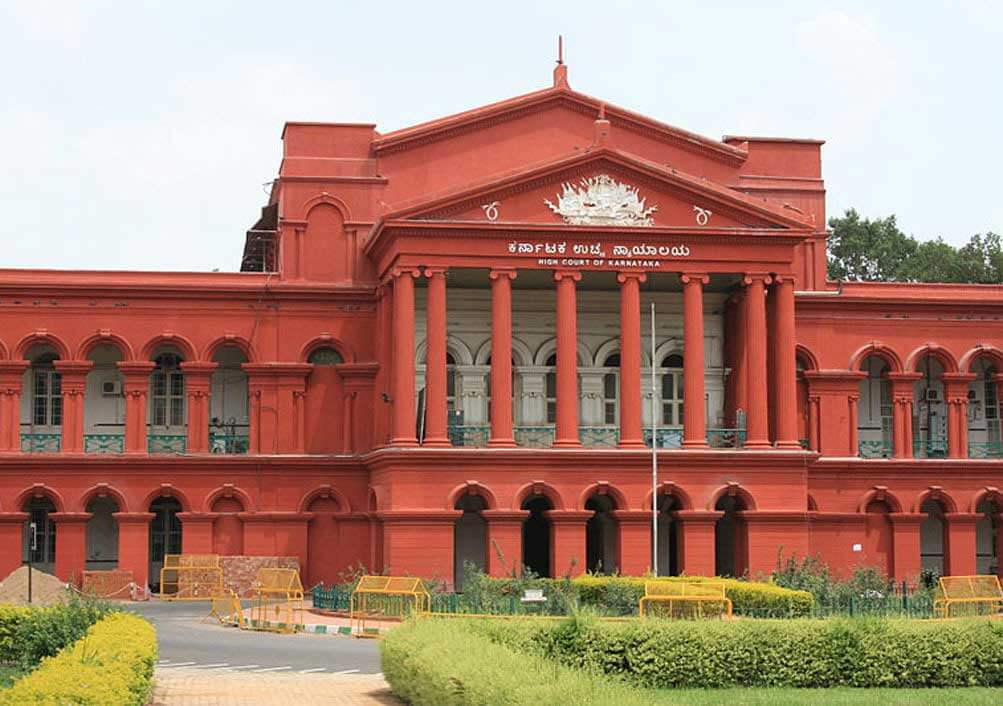In CRIMINAL PETITION No.1829 OF 2022- KAR HC- Power to alter charge u/s 216 CrPC can be exercised by Court before pronouncement of judgment; Such change can be made even after matter is reserved for its judgment: Karnataka HC [08-06-2022]

Read Order: ANANDA v. STATE OF KARNATAKA BY MASTHI POLICE STATION
Mansimran Kaur
Bengaluru, June 20, 2022: The Karnataka High Court has held that the usage of the word ‘may’ under Section 216 of the Cr.P.C. only deploys judicial discretion to be exercised while altering the said charge.
By observing that this Court found no warrant to exercise the jurisdiction of this Court under Section 482 of Cr.P.C. to intervene with the impugned order, the Bench of Justice M. Naga Prasanna dismissed the present criminal petition filed by the petitioner to assail the order dated December 31, 2021 whereby the order passed by the Second Additional Sessions Judge, Kolar added a charge under Section 7 of the POCSO Act apart from the allegations that were alleged against him under Sections 366A, 506 and 34 of Indian Penal Code.
Facts necessary for the adjudication of the subject lis were that a complaint was registered on an allegation that when the victim was going to the school at Masthi, the petitioner asked her to sit on the bike to drop her at the school. The victim was kidnapped by the fist and the second accused,for the purpose of marrying her with to the fourth accused. Further averments were made in the complaint that she escaped from the clutches of the accused and contacted the complainant and her relatives. In this backdrop, a complaint was registered against all the accused persons including the petitioner for offences punishable under Sections 366A, 506 and 34 of the IPC.
The said application was filed by the prosecution on the account of certain statements recorded at the time of trial. In relation to the same, the petitioner and others filed their objections for alteration of the charge. The Sessions Judge by his order allowed the application permitting amendment of the charge for inclusion of Section 7 of the Act.
To deal with the same, the Court took into consideration Section 216 of Cr.P.C. In view of the same, the Court observed that the power of alteration of charge as found in the statute, can be exercised by any Court, before pronouncement of the judgment, which would mean after the matter is reserved for its judgment the charge can be altered. The power of such alteration of charge was also considered by the Apex Court in the case of Anant prakash sinha @ anant sinha v. state of haryana and another . Further reliance was placed on the case of Dr. nallapareddy sridhar reddy v. state of andhra pradesh and others .
In light of the aforesaid precedents, the Court noted that the contention of the petitioner that the charge that the charge could not have been altered after three years of commencement of trial is unacceptable, as the language employed under Section 216 of the Cr.P.C. is unequivocal that a Court trying a case is empowered to alter the charge. The usage of the word ‘may’ only deploys judicial discretion to be exercised while altering the said charge. Therefore, the submission that charge cannot be altered after the trial has progressed to a large extent was rejected.
With respect to the second issue, the Court took into account Section 366A of the Indian Penal Code. It was further observed that the prosecution filed the application because of the evidence cited by the victim. The very fact that the victim child has deposed in the examination-in-chief and sustained the same in the cross examination would indicate that it is a matter for trial, as this Court cannot at this juncture consider as to what has transpired at the time when the victim was carried to a particular place and the statement of the victim being that she was touched inappropriately in all places of her body. In pursuance of the evidence, the prosecution was seeking to incorporate offences punishable under Section 7 of the Act. Thereafter Section 7 of the Act was also taken into consideration.
In light of the aforesaid observations, the Court observed that no fault was found with the order of the concerned Court in allowing the application filed by the prosecution under Section 216 of Cr.P.C., seeking alteration of charge for addition of offence punishable under Section 7 of the Act. In view of the said analysis, the Court found no warrant to exercise the jurisdiction of this Court under Section 482 of Cr.P.C. to intervene with the impugned order. Accordingly, the criminal petition was dismissed.
Sign up for our weekly newsletter to stay up to date on our product, events featured blog, special offer and all of the exciting things that take place here at Legitquest.




Add a Comment